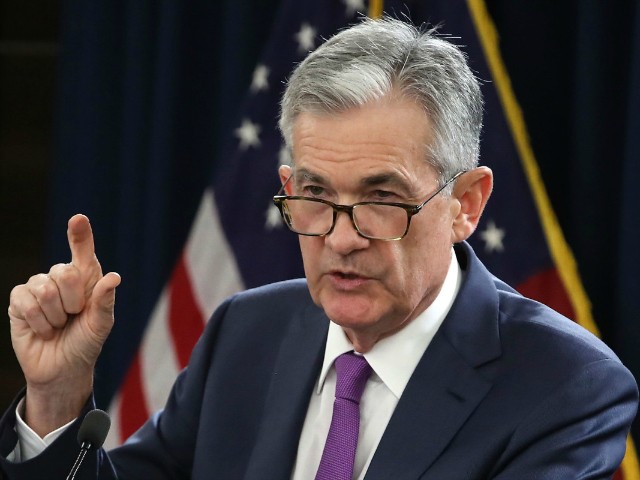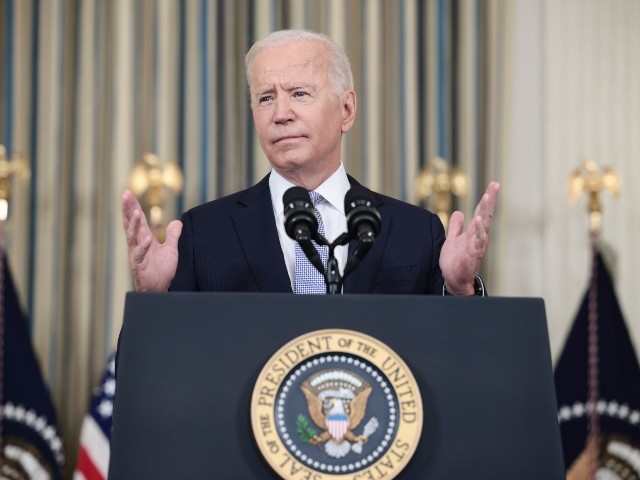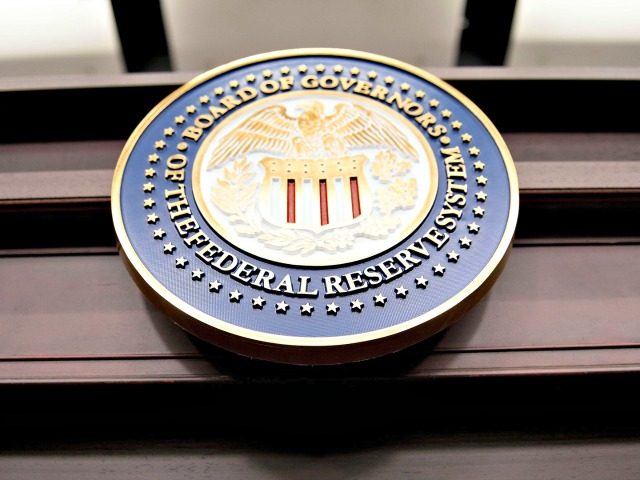The Federal Reserve is “the brainchild of six white men” which favors corporate America and Wall Street “instead of for struggling workers” and President Biden should radically transform the institution into a force fighting for climate change and the BIPOC (black, indigenous, and other people of color) community’s economic progress if he really intends to “build back better,’ according to an op-ed published in Teen Vogue on Tuesday.
In the essay, titled “What Is the Federal Reserve and Why Does It Matter?” political director of the Action Center on Race & the Economy Vasudha Desikan and Public Citizen senior climate finance policy advisor Tracey Lewis argue that the Federal Reserve should be radically transformed into “an institutional force for economic progress.”
The op-ed begins by asking readers to imagine cities purchasing and renting out vacant homes to communities at a “reasonable price,” retrofitting local infrastructure to protect from future flooding, and safeguarding “collective physical safety and economic wellness” because the government “chooses to prioritize us over Wall Street.”
“This is not an impossible dream — and we’re not actually that far from its reality,” the essay states.
Urging President Biden to garner “courage to seize the moment” and utilize the opportunity to transform the Federal Reserve into “an institutional force for economic progress for BIPOC communities” when choosing its next chair, the two claimed his upcoming decision “could shape his legacy as a champion for racial justice.”
Referring to the Fed as “the brainchild of six white men,” the essay claims little has changed regarding its leadership since.
“More than 100 years later, not much seems to have changed with its leadership: The current Fed board is entirely white, majority Republican, and has a deep history in the private sector,” it reads.
“It’s little wonder, then, that the Federal Reserve has repeatedly used its massive toolbox to favor corporate America and Wall Street, instead of for struggling workers, climate justice, or municipalities,” it continues.
It then accuses today’s Fed of propping up corporate America “while the COVID pandemic further devastates Black and brown communities.”
Though the Fed has “extraordinary authority to address and change the course of income inequality, unfair lending practices, and even the climate crisis,” according to the essay, it refuses to use its power “to do more good” because of current chair Jerome Powell’s history.
“Before coming to the Fed, [Powell] was a partner at the Carlyle Group, a private-equity firm known for buying up companies and making them ‘profitable’ by laying off workers and breaking up unions,” it reads.

Federal Reserve Board Chairman Jerome Powell speaks during a news conference on September 26, 2018 in Washington, DC. (Photo by Mark Wilson/Getty Images)
“When corporate profitability is placed above the needs of the worker, inequality thrives,” it continues, claiming that Powell’s tenure saw bank mergers surge as many COVID-hit majority-Black cities were “left out of a direct lending program from the Fed that didn’t appear to adequately account for which municipalities needed the most help.”
The essay then accuses the Fed of practices which “deepen” racial and economic disparities.
“Federal-aid funded programs that were meant to uplift small businesses and protect vulnerable workers were exploited by large companies that have clubby relationships with national banks,” it reads. “The Fed didn’t — and doesn’t — do enough to regulate those relationships. This is how generational racial and economic disparities deepen.”
Suggesting climate change “will only make these disparities worse,” the essay slams the Fed for “inadequate action on climate change under Powell “ and for only recently “taking baby steps” to address it.
“Before 2008 the Fed failed to take speculative mortgages by big banks seriously, and now it is not doing enough to stop the financing of fossil fuels, which are decimating our planet,” the two write.
“It feels like our government has learned nothing from the Great Recession,” they add.

WASHINGTON, DC – SEPTEMBER 24: U.S. President Joe Biden gestures as he delivers remarks on his administration’s COVID-19 response and vaccination program from the State Dining Room of the White House on September 24, 2021 in Washington, DC. (Photo by Anna Moneymaker/Getty Images)
The two claim their only hope, or “lifejacket in this endless sea of troubles,” is the future appointment of women leaders.
“What gives us hope is thinking about the women who could potentially take over as leaders of the Federal Reserve and shape it as a real force for racial and climate justice,” they write.
“We’re most excited about Lisa Cook, a Michigan State University economist focused on Black economic history, and Sarah Bloom Raskin, a lawyer and former Fed governor who has been sounding the alarm on climate change,” they add.
Calling them leaders with “the creativity and willingness to center economic policymaking on communities that are still reeling from 2008 and are on the front lines of climate change,” the two conclude by arguing that appointing such women leaders would be the president’s chance to truly “build back better.”
“If President Biden really wants to ‘build back better,’ he’ll take this opportunity to shape the Fed into a force for justice for Americans who have been excluded for too long — a Federal Reserve that works for all of us,” they write.
In August, Teen Vogue urged its young readers to “mobilize toward building a socialist future” and “shift the tide in favor of socialism,” describing it as “the only system that will guarantee us a livable planet and life unburdened from economic exploitation, crushing debt, and racial castes,” while claiming, “there is no future for us under capitalism.”
In November, the online publication’s columnist Kandist Mallett blasted America while calling for a range of radical motions and criticizing any notion of unity.
In the essay, she wrote that the U.S. is rooted in “divisiveness,” was founded “through the genocide of Indigenous peoples,” and flourished “through the enslavement of Africans.”
“At its core, America’s values are white supremacy and capitalism,” she added. “That is true no matter who has been in office.”
Follow Joshua Klein on Twitter @JoshuaKlein.

COMMENTS
Please let us know if you're having issues with commenting.